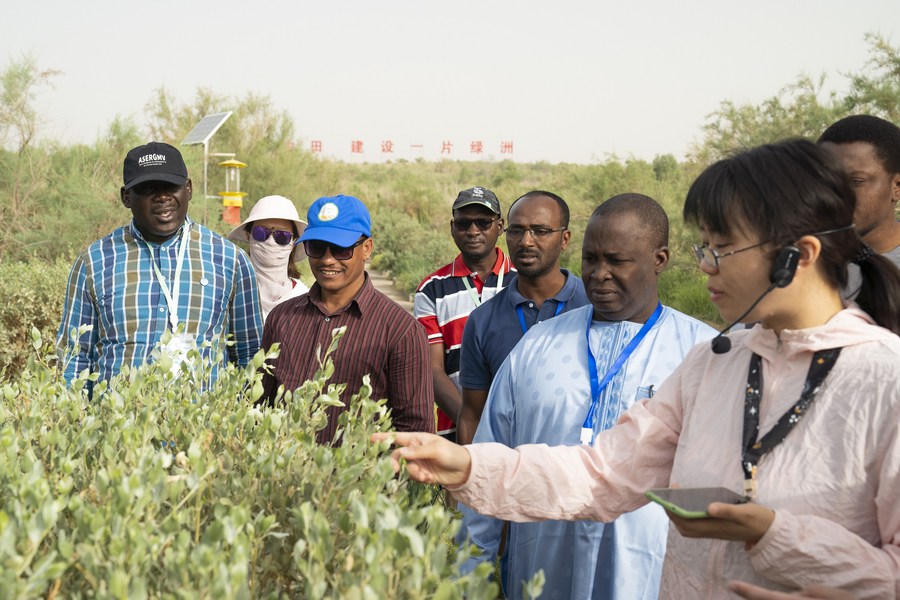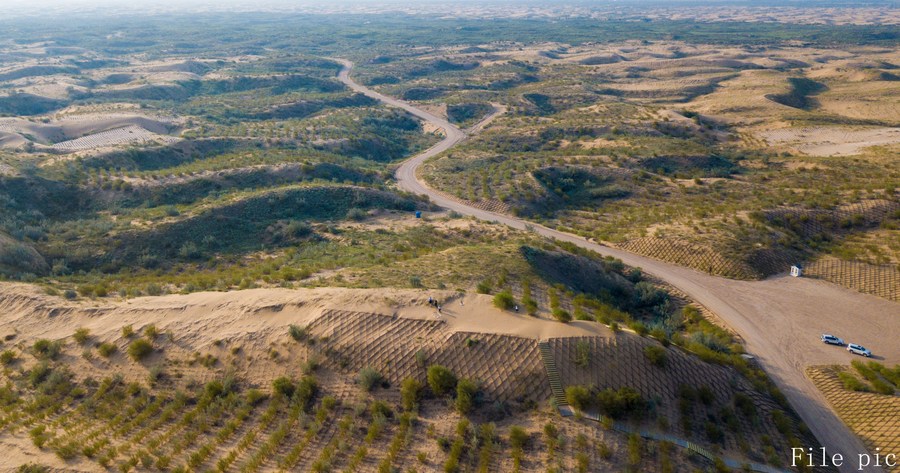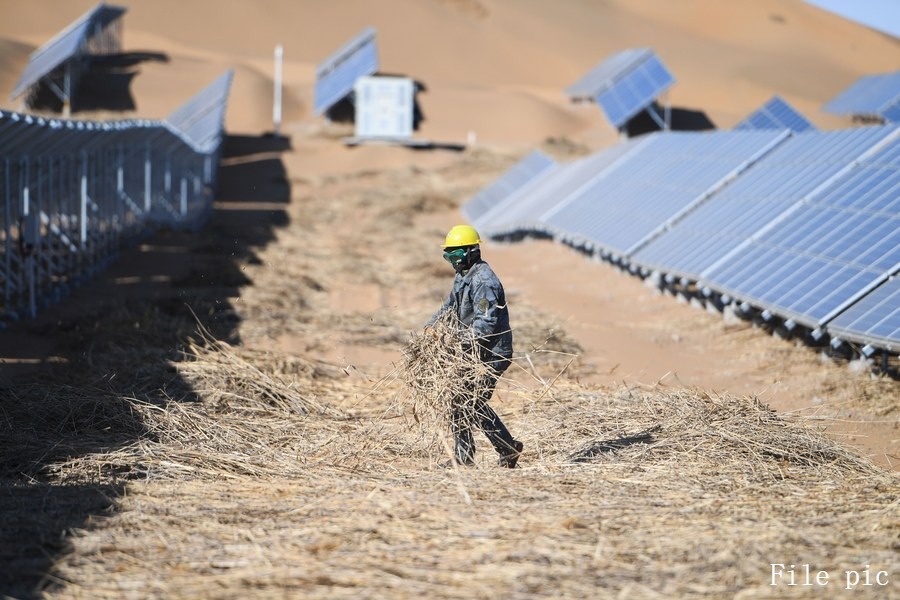Interview: China's efforts to combat desertification inspiration for Africa: expert

A Chinese technician speaks about desert plants to participants attending a desertification control training workshop at a botanical garden in the center of Taklimakan Desert, northwest China's Xinjiang Uygur Autonomous Region, June 13, 2023. (Xinhua/Zhou Shengbin)
by Marwa Yahya
CAIRO, Sept. 7 (Xinhua) -- China, through years of dedicated efforts in desert control, is now a major driving force behind global green development and a source of inspiration for African countries, Magdy Allam, an Egyptian environment expert has said.
"Turning deserts into forests is an inspiration for African countries that are battling land degradation," Allam, an advisor to the Global Environment Facility, also secretary-general of a federation for Arab environmentalists, told Xinhua in an interview on Wednesday.

Aerial photo taken on July 31, 2018 shows a sand-fixing forest in Dalad Banner of Ordos of north China's Inner Mongolia Autonomous Region. Kubuqi Desert, located in the Ordos plateau, has an area of about 18,600 square kilometers. Once being totally barren and was called the "sea of death", the desert, however, now has a green area of more than 3,200 square kilometers thanks to the efforts of local people, enterprises and government. In 2014, The United Nations Environment Program (UNEP) announced that Kubuqi Desert is an ecological economy demonstration zone, showing the experience and wisdom of Chinese people in the action. (Xinhua/Peng Yuan)
China's successful management of climate risks such as drought and heatwaves as well as its actions for addressing global warming is a real contribution to global ecological conservation, according to the expert.
During the year 2012 to 2022, China's accumulative afforestation area reached 960 million mu (64 million hectares), while 165 million mu of grassland was improved, and more than 12 million mu of wetlands were added or restored, official data showed.
"Adaptation to different climates, soil, locations and ecosystem, China has established green belts around many cities, and cultivating large swaths of land controlling desertification or soil loss," Allam said, stressing that "China is a real model for adaptation to climate change."

This photo taken on June 1, 2023 shows buildings shrouded in sand and dust during a sandstorm in Cairo, Egypt. A strong sandstorm hit the Egyptian capital city on Thursday afternoon. (Xinhua/Sui Xiankai)
Most African countries are struggling with land degradation linked to human activities and climatic shocks, the expert said, adding that China has found out the experience for desert control, offering solutions for African nations.
The Green Great Wall, an initiative launched in 2007 by the African Union, aims to restore the continent's degraded landscapes and transform millions of lives in the Sahel.
Joint China-Africa programs on the environment, including in the above initiative, enable China to provide technology and expertise to African nations on halting the spread of deserts and encroachment of sand in agricultural areas, Allam noted.

A worker paves sand barriers between photovoltaic panels to prevent and control desertification in Kubuqi Desert in north China's Inner Mongolia Autonomous Region, March 13, 2020. (Xinhua/Liu Lei)
He believed that green belts, a Chinese successful model, are effective ways to reduce the negative impacts of sand dunes and protect traditional crops from extinction.
According to the Intergovernmental Panel on Climate Change, the United Nations body for assessing the science related to climate change, approximately 46.2 percent of the Earth's land surface, which hosts a three billion population, corresponds to drylands.


